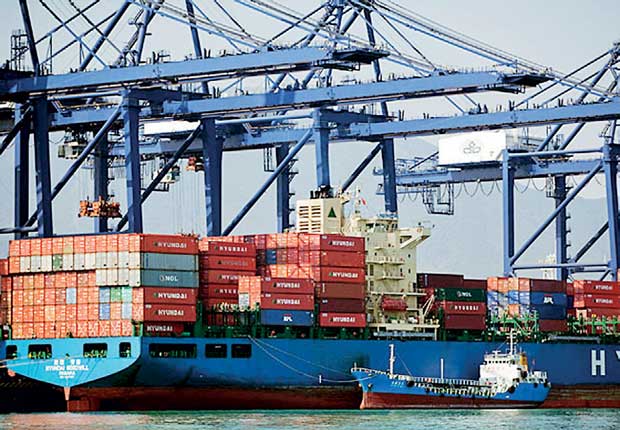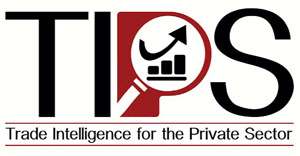30 Mar 2017 - {{hitsCtrl.values.hits}}

By CCC Economic Intelligence Unit
If trade is the engine of Sri Lanka’s new economic growth model, then trade facilitation is the essential lubricant to make that engine run smoother and better in order to speed up. The world marked an important milestone in this regard just last month, with the entering into force of the World Trade Organisation (WTO) Trade Facilitation Agreement (TFA) after two-thirds of WTO member countries officially accepted – or ratified – the agreement.
The TFA is now binding on all members, including Sri Lanka. Much has been said about the TFA being a ‘soft agreement’ unlike the typical tariff-related agreements of the past. But there is little doubt that implementing trade facilitation (TF) reforms can be a game-changer for trade. The TFA will improve trade efficiency worldwide, encouraging economic growth by cutting red tape at borders, increasing transparency and taking advantage of new technologies.
Ahead of the Ceylon Chamber of Commerce’s (CCC) seminar (April 3), on how businesses can gain from the TFA, and hearing first hand from the Director General of Commerce and of Customs, this article recaps the key reasons why this agreement matters for business and what next steps are needed.
Why does TFA matter for business?
Border inefficiencies, complex customs rules and other trade barriers make it harder for businesses of all sizes to trade internationally. It particularly hurts small and medium enterprises (SMEs). According to analysis by the World Economic Forum, implementing the TFA could boost cross-border sales for SME by 60-80 percent. More broadly, studies suggest that trade costs in developing countries will fall by 13 percent-15 percent with the implementation of the TFA. The TFA contains 36+ measures that governments must implement. These will provide transparency of laws, rules and procedures; fairness in border agency decisions; streamlined clearance procedures and help reduce administrative constraints on import, export and transit.
For Sri Lanka, full and early implementation of the TFA can have greater benefits than tariff reforms. It can foster an easier business environment for domestic investment and trading activity and attract foreign direct investment as the country becomes better integrated into global supply chains.
Work on implementing Sri Lanka’s Category A commitments must get underway without delay. Sri Lanka needs this to compete on par with other reform-oriented trading economies and support the growth of our businesses engaged in international trade.
The Sri Lankan private sector has an important role to play in the implementation of the TFA, by pushing and partnering government authorities to ensure that the TF reforms are done soon and deliver measurable improvements in trading across borders.
Sri Lankan businesses must support and accelerate the work of the National Trade Facilitation Committee (NTFC) and its Secretariat by helping the government identify priorities, share practical experiences on import/export difficulties, co-create feasible solutions and influence how the TFA’s measures are implemented on the ground.
Six next steps and messages to government
Early establishment of, and proper resourcing for, the Secretariat of the NTFC to lead the charge in implementing Sri Lanka’s trade facilitation reforms.
Aggressively drive the implementation of Sri Lanka’s Category A commitments, without waiting for the full two-year period allowed under the TFA, as it will boost the economy’s competitiveness.
Even though Category B and C are due three years from now, do everything possible beyond Category A as it can have a catalytic impact on business and make Sri Lanka an attractive trading hub.
Early passage of the new Customs Act, which has widespread industry support, can catalyse and strengthen the trade facilitation reforms expected under the TFA.
Slow progress in implementing the TF reforms, amidst faster progress by our competitors, can push Sri Lanka down on the ‘ease of doing business’ rankings.
Trade facilitation reforms are an essential complement to the ongoing trade liberalisation efforts of the government. It is only if businesses face lower border costs and easier procedures can they fully benefit from preferential trade deals.
(To know more about the ongoing TF reforms and how businesses can benefit, register to attend the Ceylon Chamber’s seminar taking place on April 3, 2017, with speakers like Director General of Commerce and DG Customs. Contact [email protected] or 0115588882 to register. The Ceylon Chamber of Commerce (CCC) ‘Trade Intelligence for the Private Sector’ (TIPS) initiative aims to help our members stay up to date on international trade issues and advocate for policy changes)
09 Jan 2025 1 hours ago
09 Jan 2025 2 hours ago
09 Jan 2025 2 hours ago
09 Jan 2025 2 hours ago
09 Jan 2025 2 hours ago